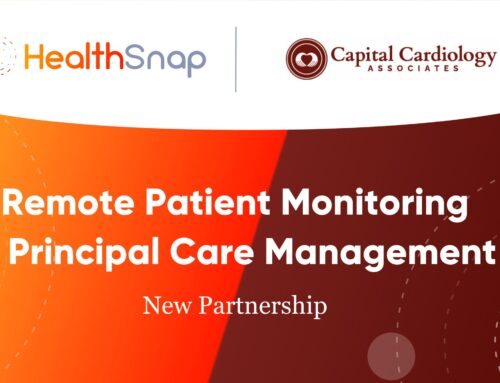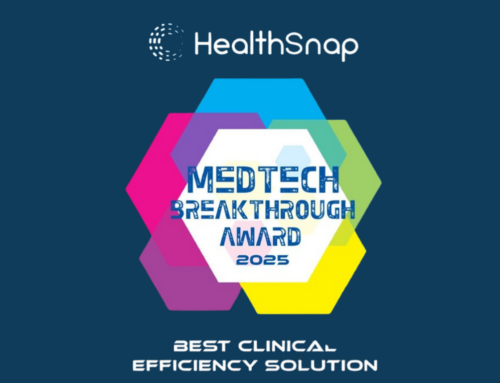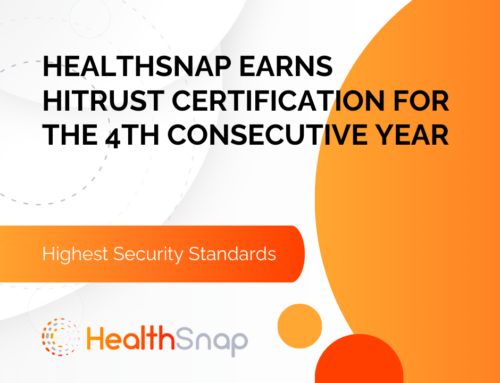In the rapidly evolving healthcare industry, the role of remote nursing has become increasingly pivotal, ushering in a new era of patient care through Virtual Care Management (VCM) programs. With dynamic healthcare changes in 2024, the importance of remote nursing is more pronounced than ever. In this guide, we will assess the key advantages that remote nursing and remote healthcare jobs bring to the forefront, particularly within the context of cutting-edge Virtual Care Management programs.
The Experience of Remote Nurses at HealthSnap
Working as a remote care nurse at HealthSnap is more than just a job; it’s a fulfilling and transformative experience, as shared by the dedicated nurses who form the backbone of HealthSnap’s Remote Patient Monitoring (RPM) and Chronic Care Management (CCM) programs.
How Remote Nursing Supports Virtual Care Management Programs
Enhanced Patient Access and Engagement
Near Real-Time Monitoring
Remote nursing, coupled with advanced technologies in Virtual Care Management programs, allows healthcare professionals to monitor patients in near real-time. From tracking vital signs with remote blood pressure monitors and glucometers to assessing symptoms, this continuous monitoring ensures early detection of any health deviations, enabling timely interventions and personalized care plans.
Patient Empowerment
Virtual care empowers patients to actively participate in their healthcare journey. With remote nursing and remote physiologic monitoring services, patients gain access to educational resources, self-monitoring tools, and personalized health data. This fosters a sense of ownership over their health, leading to improved adherence to care plans and better overall outcomes.

Efficient Resource Utilization
Optimized Workflows
Remote nursing streamlines clinical workflows by integrating seamlessly with Electronic Health Records (EHRs) and other healthcare systems. This optimization allows nurses to focus more on direct patient care, reducing administrative burdens and enhancing overall efficiency.
Cost-Effective Care
Virtual Care Management programs, supported by remote nursing, contribute to cost-effective healthcare delivery. By minimizing hospital readmissions through proactive monitoring and management, healthcare costs are reduced, benefiting both providers and patients.
Improved Care for Chronic Conditions
Personalized Chronic Care Management
Remote nursing plays a vital role in Chronic Care Management (CCM) through Virtual Care Management programs. This approach enables healthcare providers to offer personalized care plans for patients with chronic conditions, resulting in better management of the patient’s health status, reduced hospitalizations, and improved quality of life.
Proactive Interventions
With remote nursing, healthcare professionals can intervene proactively in the management of chronic conditions. By leveraging continuous data from Remote Patient Monitoring (RPM) devices, nurses can identify potential issues before they escalate, preventing complications and enhancing overall patient well-being.

Patient-Centric and Flexible Care
Tailored Patient Interaction
Remote nursing allows for more personalized and frequent patient interactions. Through virtual visits, messaging platforms, remote therapeutic monitoring, and telephonic consultations, healthcare providers can customize their approach to meet individual patient needs in a timely manner, fostering a patient-centric care model.
Flexibility in Care Delivery
Virtual Care Management programs supported by remote nursing provide flexibility in care delivery. Patients can receive care from the comfort of their homes, reducing the need for unnecessary hospital visits. This is particularly beneficial for individuals with mobility challenges or those residing in remote areas.
Compliance with Regulatory Standards
Adherence to Compliance Protocols
Remote nursing ensures that Virtual Care Management programs adhere to stringent regulatory standards. By providing comprehensive training for healthcare professionals on compliance protocols, remote nursing contributes to the delivery of high-quality and compliant virtual care.
Billing and Coding Efficiency
Compliance with billing and coding requirements is critical in the healthcare sector. Remote nursing jobs, in conjunction with VCM programs, streamline these processes, ensuring accurate documentation and facilitating efficient reimbursement.
Promotion of Interdisciplinary Collaboration
Enhanced Communication Among Teams
Remote nursing fosters interdisciplinary collaboration by facilitating seamless communication among care teams. Through secure messaging platforms and shared access to patient data, healthcare professionals can collaborate effectively, leading to more comprehensive and coordinated care.
Integrated Care Culture
Virtual Care Management programs, with remote nursing at the helm, contribute to the creation of an integrated care culture. This collaborative approach enhances coordination among healthcare professionals for the full spectrum of patient health from blood pressure monitoring to glucose level monitoring to checking the respiratory system status, breaking down silos and promoting holistic patient care.
The Role and Importance of Remote Nurses in Modern Healthcare
In modern health systems, remote nursing has emerged as a transformative component, playing a vital role in ensuring quality patient care. Remote nurses or Care Navigators, also known as telehealth or telemedicine nurses, leverage technology to provide healthcare services from a distance. Let us look at the multifaceted role of remote nurses and their significance in shaping the future of healthcare delivery.

Teletriage and Remote Patient Assessment
Remote nurses are often at the forefront of teletriage, efficiently assessing patients’ symptoms and determining the urgency of their healthcare needs. Through virtual consultations and telephonic interactions, they can accurately evaluate patient conditions, provide initial guidance, and direct individuals to appropriate levels of care.
Proactive Monitoring and Chronic Care Management
In the realm of chronic care, remote nurses play a vital role in proactive monitoring. In Remote Patient Monitoring (RPM) programs, they utilize RPM health devices to track patients’ vital signs, symptoms, and adherence to treatment plans. By closely monitoring individuals with chronic conditions, remote nurses can make sure an intervention occurs promptly, preventing exacerbations, reducing hospitalizations, and improving overall health outcomes.
Patient Education and Empowerment
Education is a cornerstone of remote nursing. These healthcare professionals empower patients by providing information about their conditions, medications, and self-care strategies. Through virtual educational sessions, remote nurses enhance patients’ understanding of their health, fostering a sense of empowerment and active participation in their care.
Virtual Consultations and Follow-Up Care
One of the key responsibilities of remote nurses within a health system is conducting virtual consultations. These interactions enable healthcare providers to connect with patients in real-time, addressing concerns, reviewing treatment plans, and ensuring continuity of care. Follow-up appointments conducted by remote nurses contribute to ongoing patient support and adherence to care regimens.
Medication Management and Adherence Support
Remote nurses actively participate in medication management, ensuring that patients adhere to prescribed medications. Through telehealth platforms, they can discuss medication schedules, potential side effects, and address any concerns patients may have. This proactive approach enhances medication adherence and contributes to improved patient outcomes.
Crisis Intervention and Emotional Support
In times of crisis or emotional distress, remote nurses provide valuable support. Through telephonic or virtual means, they offer empathetic listening, counseling, and crisis intervention. This aspect of their role is particularly crucial in addressing mental health challenges and promoting holistic well-being.
Collaboration with Interdisciplinary Teams
Remote nurses facilitate interdisciplinary collaboration by acting as a bridge between healthcare professionals. They share relevant patient data, communicate effectively with physicians and specialists, and ensure that comprehensive care plans are implemented. This collaborative approach enhances the overall quality of care.
Documentation and Compliance
Ensuring compliance with regulatory standards is an integral part of remote nursing. These healthcare professionals meticulously document patient interactions, adhere to billing and medical coding requirements, and undergo regular training on compliance protocols. This commitment to regulatory standards contributes to the delivery of high-quality, compliant virtual care.

Continuous Professional Development
Remote nurses and advanced trainee nursing students engage in continuous professional development to stay abreast of evolving healthcare technologies, regulations, and best practices. This commitment to ongoing learning ensures that they provide cutting-edge and evidence-based care to patients, benefiting all healthcare stakeholders.
Work-from-Home Advantage for Remote Nurses: A Paradigm Shift in Healthcare Employment
Flexibility and Work-Life Balance
The healthcare industry has witnessed a significant transformation with the integration of remote work, providing unprecedented opportunities for nurses to contribute to patient care while enjoying the benefits of a more flexible work arrangement.
Reduced Commuting Stress
One of the primary advantages of working from home is the elimination of commuting stress. Remote nurses can allocate the time typically spent commuting to patient care, professional development, or personal activities, contributing to a more balanced and fulfilling lifestyle.
Adaptable Work Environment
Remote nursing allows professionals to create a personalized and adaptable work environment. Nurses can design their home offices to suit their needs, fostering a space that promotes focus and well-being. This adaptability positively influences job satisfaction and overall happiness.
Improved Work-Life Integration
Work-from-home arrangements facilitate seamless integration of work and personal life. Nurses can attend to family responsibilities, pursue further education, or engage in self-care activities without compromising their professional commitments. This integration is vital for maintaining a harmonious work-life balance.
Enhanced Autonomy and Control
Remote nurses experience heightened autonomy and control over their work. This includes having the flexibility to structure patient care tasks, manage documentation, and collaborate with healthcare teams in a way that aligns with their preferences, ultimately contributing to a more empowered and satisfied nursing workforce.
Impact on Nurse Well-Being
The flexibility inherent in remote nursing positively impacts nurse well-being. Reduced stress from commuting, greater control over work hours, and the ability to create a comfortable work environment contribute to lower burnout rates and improved mental health among remote nurses.
Retention and Attraction of Nursing Talent
As the demand for nursing talent continues to grow, offering work-from-home opportunities becomes a strategic advantage for healthcare organizations. Remote positions can attract and retain nursing professionals (with nursing license), contributing to a resilient and satisfied nursing workforce.
Increased Job Satisfaction
The paradigm shift toward remote work in the healthcare sector has not only redefined how patient care is delivered but has also significantly impacted the job satisfaction levels of nurses.
Autonomy in Work Arrangements
Remote nursing positions empower professionals with a greater degree of autonomy in structuring their work arrangements. The flexibility to determine work hours and set up a conducive home office environment fosters a sense of control, contributing to increased job satisfaction.
Tailored Work Environment
The opportunity to create a personalized and tailored work environment is a significant contributor to job satisfaction among remote nurses. The ability to design a home office that meets individual preferences enhances comfort, focus, and overall job satisfaction.
Opportunities for Professional Development
Remote nursing positions often provide opportunities for ongoing professional development. Virtual platforms and telehealth services offer avenues for nurses to enhance their skills, engage in continuous learning, and stay updated on industry advancements, contributing to increased job satisfaction.
Enhanced Work Engagement
The flexibility and autonomy inherent in remote nursing lead to heightened work engagement. Nurses who have control over their work arrangements and experience greater job satisfaction are more likely to be fully engaged in their professional roles, positively impacting the quality of patient care.
Reduced Burnout Rates
The work-from-home advantage contributes to lower burnout rates among remote nurses. The alleviation of stressors associated with commuting, coupled with the ability to balance work and personal life, promotes overall well-being and resilience, reducing the risk of burnout.
Positive Impact on Mental Health
Increased job satisfaction resulting from remote nursing positively influences mental health. The flexibility to manage work and personal life, coupled with the reduced stress of commuting, creates a conducive environment for maintaining mental well-being among remote nurses.
Geographic Accessibility
The adoption of remote work in the nursing profession has brought forth a multitude of advantages, with geographic accessibility standing out as a key benefit.
Overcoming Geographic Barriers
Remote nursing positions break down traditional geographic barriers, enabling healthcare professionals to provide services beyond the confines of a specific location. This newfound accessibility is particularly impactful in reaching underserved or remote areas where access to healthcare might be limited.
Expanding Reach to Rural Communities
The work-from-home advantage empowers nurses to extend their reach to rural communities. By leveraging telehealth technologies and virtual platforms, remote nurses can bridge the healthcare gap in rural areas, offering vital services and support to populations that may have previously faced challenges in accessing quality care.
Addressing Healthcare Disparities
Geographic accessibility through remote nursing addresses healthcare disparities. Vulnerable populations, including those in areas with limited healthcare infrastructure, can benefit from virtual nursing services. This contributes to a more equitable distribution of healthcare resources and supports initiatives aimed at reducing disparities in health outcomes.
Increased Patient Access to Specialized Care
Remote nursing allows healthcare organizations to pool specialized nursing talent, providing patients in diverse geographic locations with access to expert care. Patients can benefit from the expertise of specialized nurses without the need to travel, improving overall healthcare outcomes and patient satisfaction.
Enhancing Emergency Response
Geographic accessibility plays a critical role in emergency response. Remote nurses can swiftly respond to emerging healthcare crises or disasters, offering immediate support and care coordination regardless of their physical location. This rapid response capability contributes to more effective emergency healthcare management.
Supporting Healthcare Continuity
In situations where geographic challenges, such as adverse weather conditions, may disrupt traditional healthcare services, remote nursing ensures continuity. By working from home, nurses can continue to provide care seamlessly, mitigating the impact of external factors on healthcare delivery.
Collaborative Care Across Regions
The work-from-home model facilitates collaborative care across different regions. Remote nurses can engage in interdisciplinary collaboration with healthcare professionals located in various geographic areas, fostering a collective approach to patient care and leveraging diverse perspectives for more comprehensive healthcare solutions.

Improving Access to Preventive Care
Geographic accessibility enables remote nurses to actively engage in preventive care efforts. By reaching patients in different locations, nurses can participate in community outreach programs, health education initiatives, and preventive care campaigns, contributing to improved population health on a broader scale.
Adapting to Changing Demographics
As demographic shifts occur, with population movements and changes in healthcare needs, remote nursing offers adaptability. Nurses can relocate without disrupting their professional roles, ensuring that healthcare services remain accessible and responsive to changing demographic patterns.
Supporting Healthcare Policy Objectives
Geographic accessibility aligns with broader healthcare policy objectives. Remote nursing contributes to achieving goals related to healthcare access, population health, and the delivery of patient-centered care. The model supports the realization of policy initiatives aimed at optimizing the healthcare system’s efficiency and effectiveness.
Reduced Commuting Stress
The shift to remote nursing positions has introduced a myriad of advantages, with reduced commuting stress emerging as a notable benefit.
Eliminating Daily Commuting Hassles
Remote nursing eliminates the need for daily commuting to a physical healthcare facility. This absence of commute-related hassles, such as traffic congestion, long travel times, and transportation costs, contributes to a significant reduction in stress for nurses. Instead of spending precious time navigating through traffic or relying on public transportation, remote nurses can redirect that time and energy toward their professional responsibilities and personal well-being.
More Personal Time and Leisure
Reduced commuting stress allows remote nurses to reclaim valuable personal time. Without the need for lengthy commutes, nurses can engage in leisure activities, pursue hobbies, or simply relax during the time they would have otherwise spent traveling to and from work. This improved work-life integration positively impacts mental well-being and contributes to a more fulfilling lifestyle.
Mitigating Physical and Mental Fatigue
Long commutes can contribute to physical and mental fatigue, impacting overall well-being. Remote nursing mitigates these challenges by providing a work environment where nurses can focus on their tasks without enduring the strain of extended travel. As a result, nurses can approach their responsibilities with increased energy and concentration, positively influencing the quality of patient care.
Reducing Financial Strain
Commuting often comes with associated costs, including transportation expenses and the wear and tear on personal vehicles. Remote nursing positions alleviate this financial burden, leading to reduced stress related to budgeting for commuting costs. The financial relief contributes to a more stable and secure professional and personal life for remote nurses.
Cost Savings
Remote nursing positions not only revolutionize the traditional healthcare work model but also bring about substantial cost savings for nurses.
Elimination of Commuting Costs
One of the primary cost-saving benefits of remote nursing is the elimination of commuting expenses. Remote nurses can significantly reduce or entirely eliminate costs associated with daily travel, such as fuel or public transportation fees. This financial relief directly contributes to increased disposable income and a more stable financial situation.
Lower Meal and Snack Costs
Remote nursing positions offer greater control over meal and snack choices. Nurses working from home can prepare their meals, reducing the reliance on expensive take-out or cafeteria options. This shift not only promotes healthier eating habits but also results in substantial cost savings over time.
Minimized Childcare Expenses
For nurses with children, working remotely can lead to significant savings in childcare expenses. Traditional work arrangements often require childcare services during working hours. Remote nursing positions provide the flexibility for nurses to manage their schedules around childcare responsibilities, reducing or eliminating the need for costly childcare services.
Reduced Facility-Related Costs
Working remotely eliminates the need for nurses to incur costs related to working within a healthcare facility. Expenses such as parking fees, facility fees, or any other charges associated with on-site work are eliminated. This reduction in facility-related costs directly contributes to the financial advantages of remote nursing.
Savings on Daily Incidentals
Daily incidentals, such as coffee shop purchases, workplace snacks, and other small expenses that may accumulate in a traditional office setting, are minimized for remote nurses. The ability to create a personalized and cost-effective work environment at home contributes to consistent savings in these incidental costs.
Potential Tax Deductions
Remote nurses may be eligible for various tax deductions associated with their home office setup. Expenses related to the home office space, equipment, and utilities could potentially be deducted, providing additional financial benefits. It is crucial for remote nurses to explore and understand the tax implications and potential deductions available to them.
Increased Job Satisfaction through Financial Stability
The cost savings associated with remote nursing positions play a vital role in enhancing overall job satisfaction. Financial stability reduces stress related to budgeting, contributing to a more positive work experience. Nurses who experience greater financial well-being are more likely to be engaged, motivated, and satisfied in their roles.
Enhanced Focus on Patient Care
Remote nursing positions offer a unique advantage by allowing nurses to work from the comfort of their homes, fostering an environment that enhances their focus on patient care.
Reduced Distractions and Interruptions
Working from home provides remote nurses with a controlled and focused environment. The absence of common workplace distractions and interruptions allows nurses to concentrate more effectively on patient care-related tasks. This enhanced focus positively impacts the quality and accuracy of care provided.
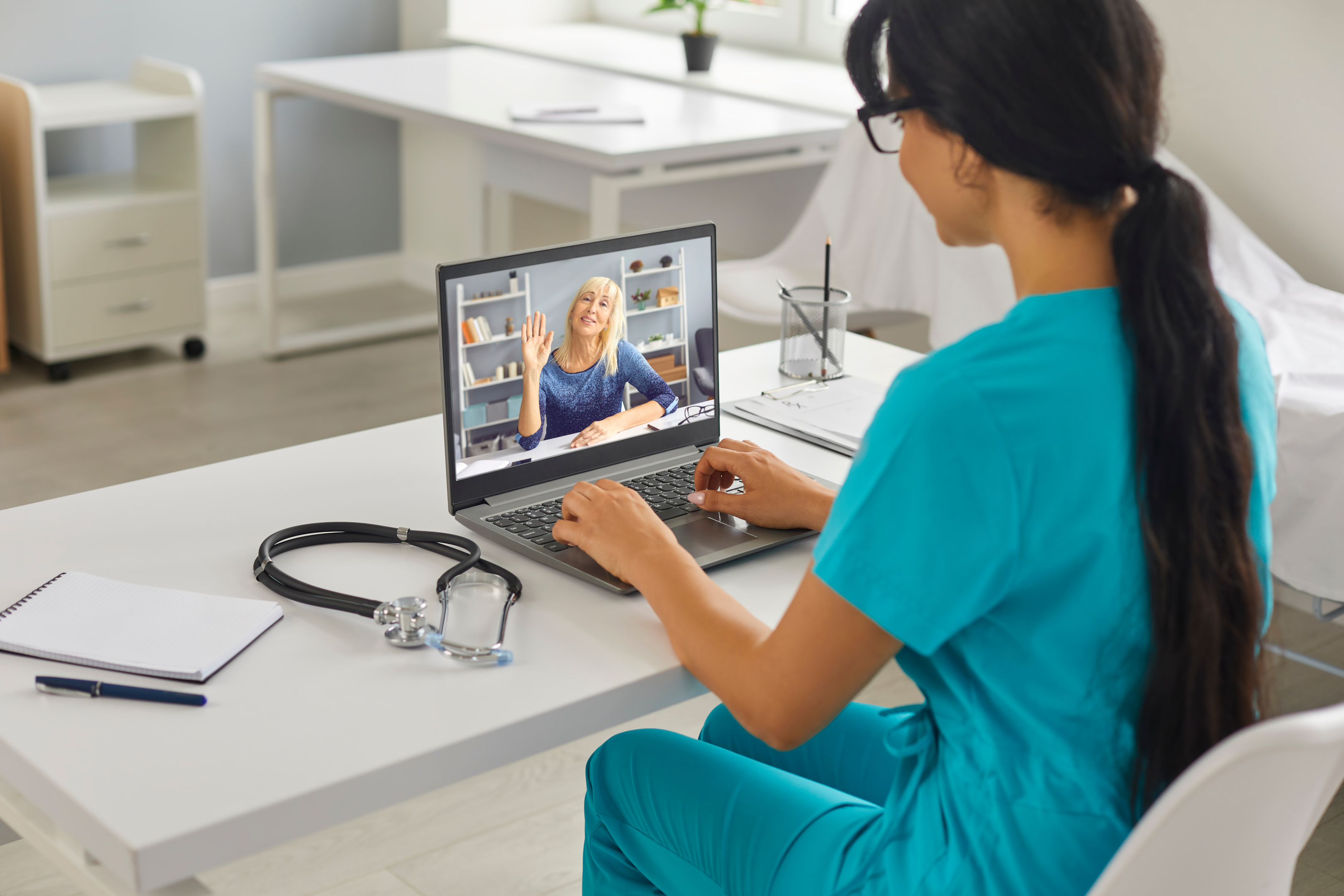
Enhanced Communication with Patients
Remote nursing positions often involve virtual communication with patients, creating an environment conducive to meaningful and focused interactions. Video calls, messaging platforms, and telehealth appointments facilitate clear and direct communication, allowing nurses to address patient concerns promptly and with undivided attention.
Empathy and Emotional Connection
The work-from-home advantage fosters an environment where nurses can express empathy and establish emotional connections with patients more effectively. The personalized nature of remote interactions allows nurses to dedicate time to understanding the emotional and psychological aspects of patient care, contributing to a holistic and patient-centered approach.
Technology-Enabled Collaboration
Remote nursing positions leverage advanced technologies to facilitate seamless collaboration among healthcare professionals.
Virtual Communication Systems
Remote nurses benefit from a variety of virtual communication platforms that enable near real-time interactions with healthcare teams. Video conferencing, messaging apps, and collaboration tools provide a virtual space for nurses to discuss patient cases, share insights, and participate in team meetings. These platforms contribute to effective communication despite geographical distances.
Electronic Health Records (EHRs)
The integration of Electronic Health Records (EHRs) is a cornerstone of technology-enabled collaboration in remote nursing. EHR systems allow nurses to access, update, and share patient information securely. This ensures that all members of the healthcare team have real-time access to vital patient data, fostering coordinated and informed decision-making.
Virtual Care Management Platforms
VCM and telehealth platforms play a pivotal role in remote nursing by enabling virtual consultations and remote monitoring of patients. These platforms allow nurses to collaborate with physicians, specialists, and other healthcare professionals to discuss patient conditions, treatment plans, and follow-up care. The seamless integration of telehealth promotes a comprehensive approach to patient care.
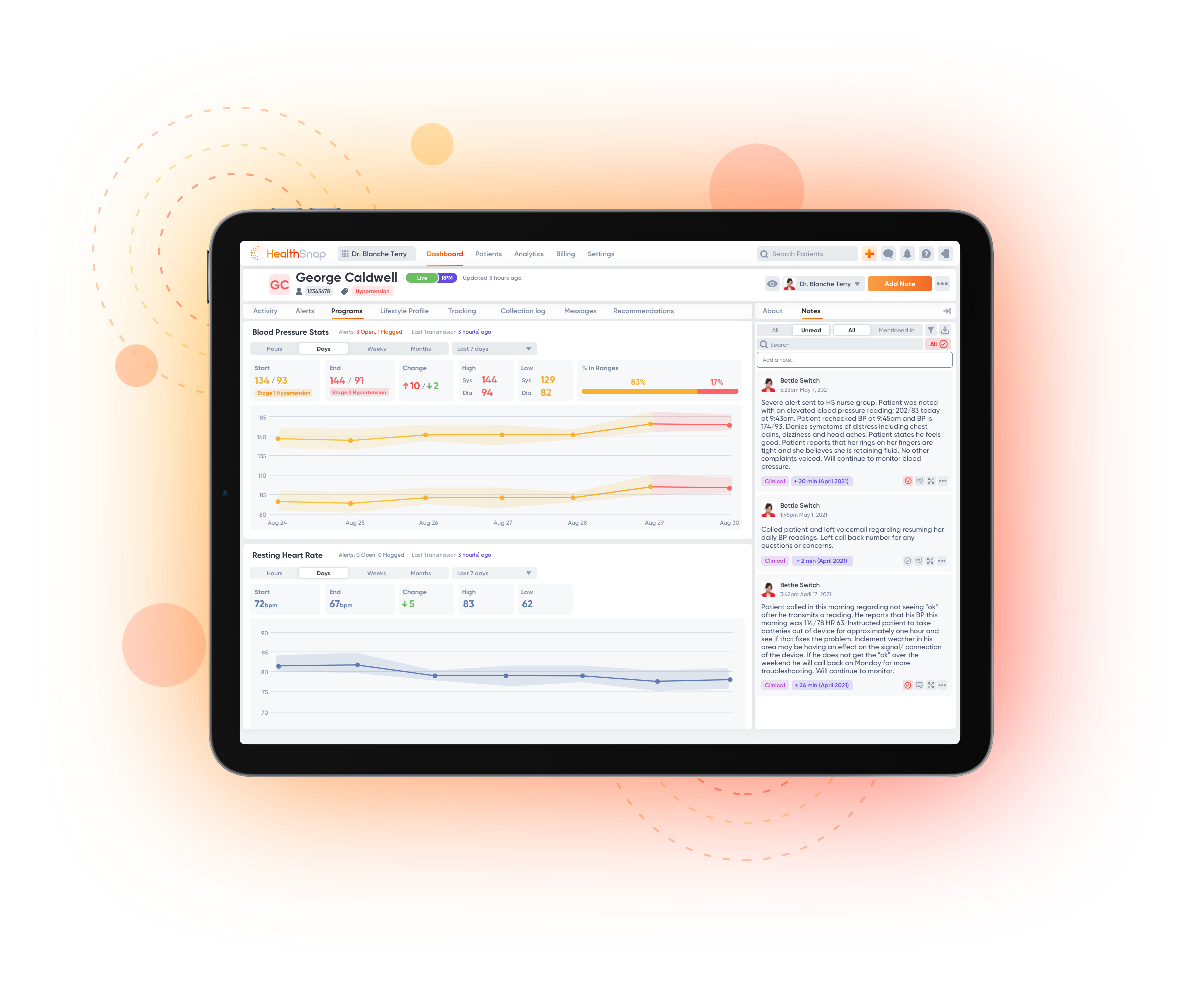
Secure Messaging Systems
In a remote nursing environment, secure messaging systems are crucial for exchanging sensitive patient information. These encrypted communication channels allow nurses to communicate efficiently and securely with colleagues, ensuring that patient data remains confidential while facilitating effective collaboration on care plans.
Collaborative Documentation Platforms
Cloud-based documentation platforms facilitate collaborative note-taking and documentation among healthcare teams. Remote nurses can contribute to patient records, share observations, and stay updated on changes in treatment plans. This collaborative documentation ensures that all team members have access to the latest information, promoting continuity of care.
Remote Monitoring Devices
Technology-enabled collaboration extends to the use of remote monitoring devices that allow healthcare teams to track patient vital signs and health metrics. Remote nurses can collaborate with monitoring teams to interpret data, identify trends, and make informed decisions about patient care. This proactive approach enhances the overall coordination of care.
Virtual Team Huddles
Regular virtual team huddles create a sense of connection among remote nursing teams and other healthcare professionals. These sessions provide opportunities to discuss challenging cases, share best practices, and address any concerns or questions. Virtual team huddles contribute to a supportive and collaborative work environment.
Adapting to Technological Innovations
Remote nursing positions not only benefit from technology-enabled collaboration but also empower nurses to adapt to continuous technological innovations.
Rapid Access to Training Modules
Remote nurses can quickly access online training modules and resources to stay abreast of new technologies. Training programs on the latest healthcare software, medical devices, and Virtual Care Management platforms empower nurses to adapt swiftly to technological changes. This agility ensures that remote nurses remain competent and confident in utilizing evolving tools.
Virtual Reality (VR) Simulations
The integration of virtual reality (VR) simulations provides remote nurses with immersive learning experiences. VR platforms simulate various healthcare scenarios, allowing nurses to enhance their clinical skills, practice critical procedures, and familiarize themselves with advanced technologies. This innovative approach contributes to continuous professional development.
Artificial Intelligence (AI) Assistance
Remote nurses can leverage AI-powered tools to enhance their efficiency and decision-making. AI algorithms can assist in analyzing patient data, identifying patterns, and offering insights that support clinical decision-making. The ability to adapt to AI-driven solutions enables remote nurses to navigate complex healthcare landscapes effectively.
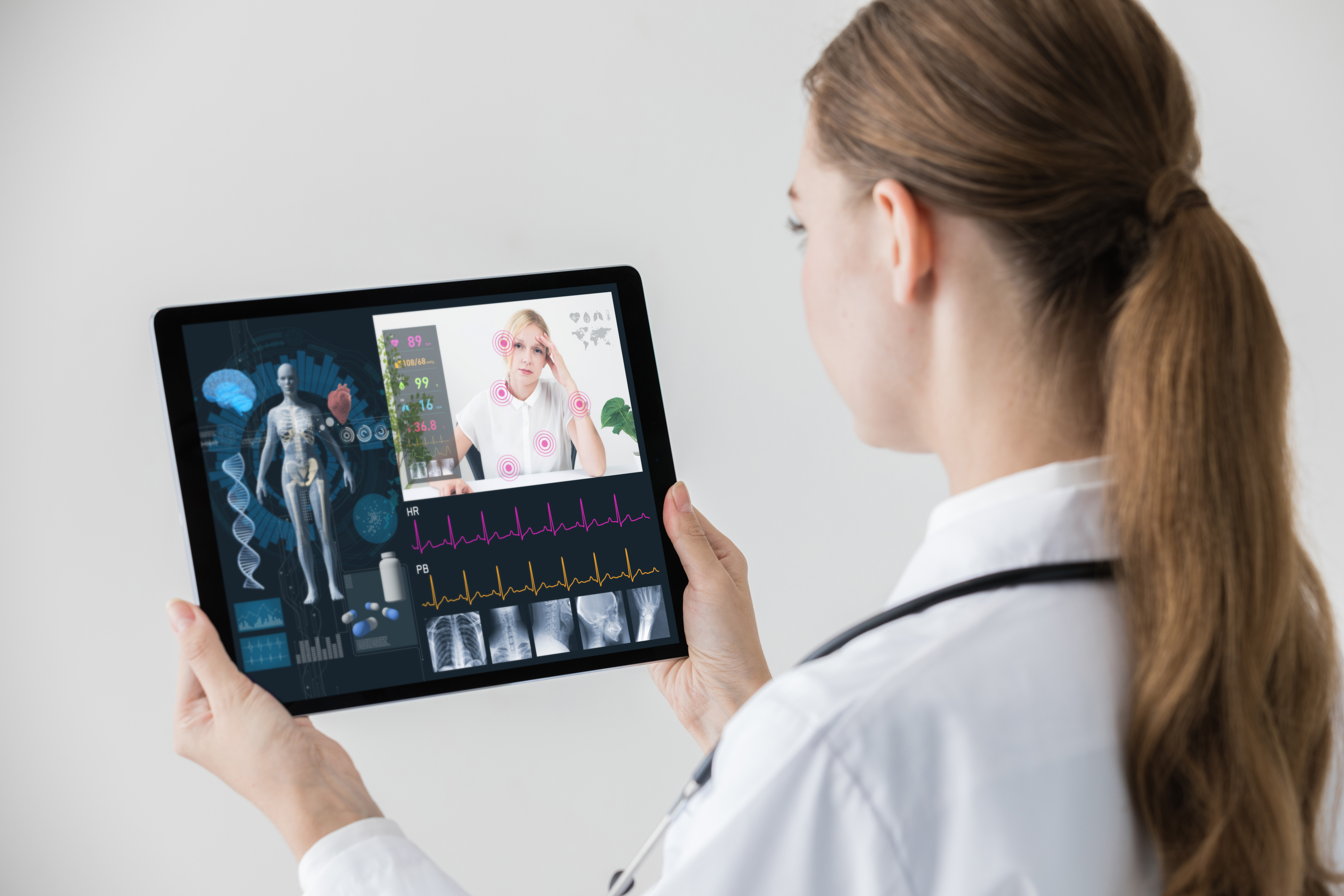
Wearable Technology Integration
As wearable technology gains prominence in healthcare, remote nurses can adapt to monitoring devices and smart wearables. These devices provide real-time data on patient vitals and health metrics. Remote nurses, by embracing wearable technology, contribute to comprehensive remote patient monitoring and actively engage in preventive healthcare measures.
Mobile Health (mHealth) Applications
The proliferation of mobile health applications empowers remote nurses to manage patient care from their fingertips. These applications facilitate secure communication, appointment scheduling, and remote monitoring. Adapting to mHealth solutions enhances the work-from-home experience, making it more convenient for nurses to coordinate patient care.
Blockchain for Data Security
Understanding and adapting to blockchain technology is crucial for remote nurses concerned with data security. Blockchain ensures secure and transparent storage of patient records, reducing the risk of data breaches. Remote nurses can actively participate in ensuring the integrity and confidentiality of patient information through blockchain adoption.
Continuous Learning Platforms
Remote nurses can engage with continuous learning platforms that provide insights into emerging healthcare technologies. Webinars, online courses, and virtual conferences offer opportunities to explore new innovations and understand their practical applications. This adaptability to continuous learning positions remote nurses as informed contributors to healthcare advancements.
Remote Access to Research and Journals
Staying current with the latest research findings and healthcare trends is essential for remote nurses. The ability to access research articles and medical journals remotely ensures that nurses are well-informed about technological advancements, evidence-based practices, and emerging treatment modalities.
Pandemic Resilience
The ability to work from home has proven to be a significant advantage for remote nurses, especially in the context of disease control during a pandemic.
Safety Measures and Infection Control
Working from home minimizes exposure to infectious agents, a critical consideration during a pandemic. Remote nurses can adhere to strict safety measures without compromising patient care. This work arrangement reduces the risk of healthcare professionals contracting or spreading infections, contributing to the overall safety of both healthcare workers and patients.
Efficient Triage and Telehealth Services
Remote nurses play a pivotal role in efficient triage and telehealth services. Through virtual consultations, they can assess and prioritize patient needs, ensuring that those requiring immediate attention receive timely care. This proactive approach helps manage the influx of patients during a pandemic, preventing healthcare systems from becoming overwhelmed.
Quick Adaptation to Evolving Guidelines
The dynamic nature of pandemics requires healthcare professionals to adapt swiftly to evolving guidelines and protocols. Remote nurses, equipped with digital resources and online training, can stay updated on the latest recommendations. This adaptability ensures that healthcare practices align with current guidelines, promoting effective and evidence-based care.
Maintaining Continuity of Care
The work-from-home advantage enables nurses to maintain continuity of care even in challenging circumstances. Patients with chronic conditions or those in need of ongoing healthcare can receive consistent support through remote monitoring and virtual check-ins. This ensures that essential healthcare services continue uninterrupted during a pandemic.
Addressing Staffing Challenges
Pandemics often strain healthcare resources, leading to staffing challenges. Remote nursing positions offer a solution to address these challenges by providing a pool of healthcare professionals who can contribute remotely. This distributed workforce helps mitigate staffing shortages, ensuring that healthcare facilities can maintain essential services.
Rapid Deployment in Crisis Areas
Remote nurses can be rapidly deployed to crisis areas during a pandemic. Their ability to work from any location facilitates quick responses to emerging hotspots. This strategic deployment ensures that healthcare resources are efficiently distributed, helping to contain the spread of infectious diseases and deliver care where it is most needed.
Less Involvement in Admin Work
One of the significant benefits of the work-from-home setup for remote nurses is the reduction in administrative responsibilities.
Streamlined Administrative Processes
Working remotely minimizes the bureaucratic burden on nurses. With digital tools and virtual platforms, administrative tasks, such as documentation and record-keeping, become more streamlined. Automated systems can handle many administrative processes, allowing nurses to allocate more time to direct patient care.

Increased Efficiency Through Technology
Remote nursing positions leverage technology to enhance administrative efficiency. Electronic Health Records and virtual communication platforms enable nurses to access patient information seamlessly. This reduces the time spent on paperwork and administrative tasks traditionally associated with on-site work, enabling a more focused and efficient workflow.
Efficient Communication and Coordination
Digital communication tools facilitate efficient collaboration among healthcare teams. Remote nurses can communicate with colleagues, physicians, and support staff without the constraints of physical proximity. This streamlined communication reduces the need for time-consuming administrative meetings, allowing nurses to concentrate on patient-related tasks.
Improved Time Management
The remote work environment empowers nurses to manage their time more effectively. With fewer interruptions from administrative duties, nurses can prioritize patient care, allocate time for professional development, and maintain a healthier work-life balance. This improved time management contributes to job satisfaction and overall well-being.
Patient-Care Centric Documentation
Remote nursing encourages a shift towards patient-care centric documentation. Instead of being bogged down by paperwork, nurses can focus on documenting essential information directly related to patient care. This approach ensures that documentation aligns with the core goal of providing quality healthcare services.
Elevate Patient Care with HealthSnap’s Virtual Care Management Programs
With HealthSnap’s RPM and CCM solutions, you gain the power to monitor patients remotely, collect vital health data, and engage in proactive care strategies. HealthSnap’s Virtual Care Management platform offers a user-friendly interface that enhances the ability to navigate and interpret patient information, supporting care providers’ ability to make informed decisions.
Elevate your patient interactions, expand your reach, and contribute to the paradigm shift in healthcare delivery. To learn more about HealthSnap’s Virtual Care Management programs call today at 888-780-1872 (Ext. 3), and learn more about our current openings for remote nurse positions, click here to browse HealthSnap’s current open positions.



